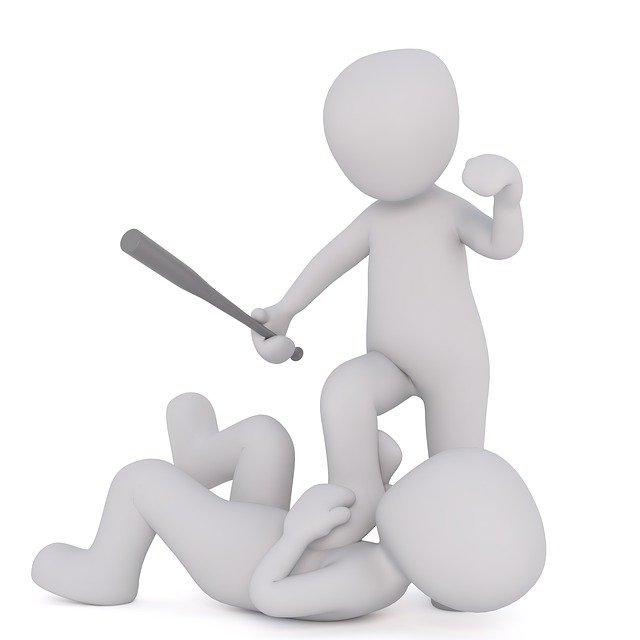We recently published a post about in-person crime at Bitfalls.com. It turns out that as cryptocurrencies keep growing in market cap, related crime is growing too.

The post lists several instances of people who were kidnapped, beaten, blackmailed, robbed, etc. for their cryptocurrency holdings. You can read that post for more information on who those people were and why it happened. But I'd like to take this opportunity to list some common ways to avoid these problems:
1. Never tell the internet how much crypto you have
This is the most common rule that people who are crypto-rich break. They'll make Youtube channels, blog posts, even brag on Twitter about their "lambos". Many will pretend to be experts because they invested in Bitcoin when it was $10, and now suddenly they're the foremost investment authority in the world. Advertising how crypto rich you are is just asking for trouble. Never do it - it paints a target on your back.
2. If you MUST tell people you have a lot of crypto, protect yourself
Sometimes it's inevitable - if you're a crypto expert, are running a crypto exchange or a brokerage, or are just helping people manage their portfolios, you will be a target by default. In those cases, it's important to secure the funds properly. At Bitfalls, we do portfolio management for people but all the coins are secured on Ledgers which are destroyed after their 24 word phrase is generated. The phrases are split into smaller ones, and those parts are then stored in different geographical locations so even getting to them takes a few days. This has two advantages: it prevents panicking clients from panic-selling, and makes robbing us impossible because a different facility is keeping a each different part of the phrase secure. As far as personal crypto - make sure you know how the Ledger works because it has a function that's IDEAL for this: plausible deniability. You can define as many PIN codes as you wish, and each unlocks a special set of wallets. You can keep $100 on some wallets on PIN1 and $1 million on other wallets on PIN2. When you get robbed, you give them the "cheaper" PIN and they cannot be sure if you have plausible denaibility on or if you gave them the right thing - it's not visible anywhere.
3. Avoid trading in-person
There are many platforms that let you arrange in-person trades - for example, LocalBitcoins or Abra. This is not the best idea, however. Not only can you get ambushed, beaten and robbed, but you're also avoiding taxes. Yes, taxes are a hot topic in this ecosystem, but most countries now have capital gains taxes that require you to show a receipt when cashing in crypto gains, and you only pay taxes on the difference. If you have no receipt, you pay the tax on the full amount. So buying on platforms that are legit and can give you receipts is, while slightly more expensive, very much worth it - you'll see the difference when tax season starts!
If you must trade in-person, do it at a popular and crowded location and bring protection - either weapons if legal in your area, or some strong friends or employees. Since you're not doing anything illegal, doing this near a police station is actually perfectly fine and safe - depending on the amounts changing hands.
4. Diversify
Last but not least, diversify. Don't keep all your crypto on one medium in one wallet. That way, even if you do lose your phone which has your wallet, your other funds are still safe. Even if your Ledger gets stolen, you still have the passphrase at home, and even if you lose that, you should have another Ledger, or a paper wallet where you stored the other funds. Having one point of attack means they only need to attack you once to drain you 100% - avoid that.
Stay safe everyone!
Wise words.
That's a little bit super paranoid for localbitcoins trades! It's unlikely you will be doing high value trades in person in cash with it and if you must do due diligence and then some.
Basic common sense avoids majority of localbitcoin in person trade problems. Verified profile, reputation, reviews, public meeting place, escrow etc. Along with the other basic tips of not having everything in one wallet, don't have more than needed to trade on localbitcoins etc.
Bringing friends and guns is extreme! I guess justified if it's a trade in, say, Venezuela for $20k+ in USD. $USD is illegal there, government might arrest you for BTC trading and super hyper inflation has made $100 or equivalent goods value a small fortune some people will kill others for.
I wish I could agree that it's too paranoid, but stories say otherwise - the incidents in our original post list several trades of $100k USD and more. It's a crazy world out there. Granted, you're right in that you can avoid most problems by just trading with verified profiles and doing smaller trades.